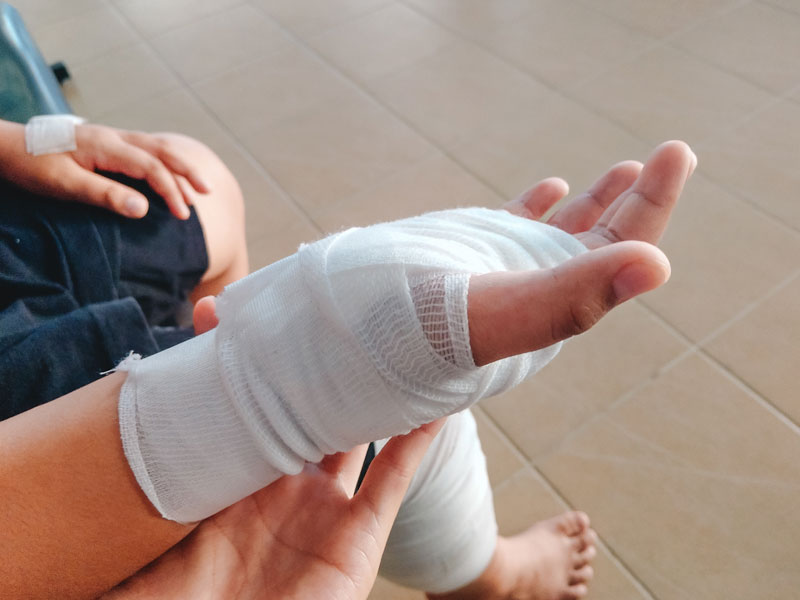
You may be reluctant to bring a personal injury claim, but not because you’re worried that you won’t prevail at trial or get treated fairly under the law. Instead, you may be worried that people will think your claim is frivolous.
“Frivolous lawsuit” is a term created by politicians and insurance companies to call into question the entire concept of seeking fair and reasonable compensation for real injuries caused by the negligence of another. There have been many personal injury claims filed over unusual incidents. This doesn’t mean those claims are frivolous. With more people on this planet, more cars on the road, and more products being advertised to us in a commercial world, honest people are being harmed and deserve to have their claims determined on the merits of their case.
Even if a personal injury claim seems strange, that doesn’t necessarily mean that it is without merit. Perhaps the most famous example is the McDonald’s hot coffee case of 1994, in which an elderly woman named Stella Liebeck sued the fast food chain after spilling coffee on herself. Many people still believe that this case involved a greedy plaintiff who suffered a minor burn from carelessly handling a hot beverage, then exploited the injury to seek a huge settlement from a wealthy corporation.
The truth is much more complicated. Liebeck suffered third-degree burns over 16 percent of her body and was hospitalized for eight days. She only sued McDonald’s after the company repeatedly refused her requests to cover her medical bills. The trial also exposed how McDonald’s had been keeping its coffee dangerously hot (against industry safety standards) to maximize the number of cups of coffee it could get out of one pot, and hadn’t changed this practice even after the company became aware of hundreds of prior burn injuries. In other words, the trial brought out the greed of a fast food giant in the face of many people being injured by their product.
In the end, Liebeck asked the jury to send a message to McDonald’s. Liebeck prevailed in her claim, and McDonald’s was ordered to pay compensatory damages for her pain, suffering, and medical bills, as well as punitive damages.
The award was equal to one day’s coffee receipts for McDonald’s worldwide, which is why the number was so high. And this is what the insurance industry, politicians in the pockets of big business, and others that want to limit injured people’s rights access to the courts used to indoctrinate the general public — those that will eventually sit on juries. In actuality, the trial court reduced Liebeck’s award substantially under state law. The general public rarely heard about that, however.
Even if you’re worried that your personal injury claim may cause you embarrassment, this shouldn’t dissuade you from consulting with an attorney on the matter. If you have a legitimate personal injury claim and choose not to pursue it, you won’t be able to collect any damages from the negligent party — and you may be on the hook for any medical bills and other expenses.
Frivolous personal injury claims vs. illegitimate personal injury claims
Very few personal injury claims are actually considered frivolous. That’s because a frivolous claim is one the court determines to be a deliberate bad faith effort to harass a defendant. Frivolous lawsuits may attempt to tarnish a defendant’s reputation, cause embarrassment to a defendant, or bring media attention to an issue.
Courts consider personal injury claims to be frivolous if they are filed on grounds that are so flimsy that a reasonable person wouldn’t believe that the facts support the plaintiff’s case. A court may also consider a claim to be frivolous if it is not supported by existing laws, although the plaintiff may argue that they believe there is a good faith argument for their case to establish a new legal precedent.
In general, attorneys will never try to take a frivolous claim before a court. Here’s why:
- Bad reputation: Frivolous lawsuits cause stress and economic losses for the defendants and waste the court’s time. Attorneys don’t want to be responsible for this type of detrimental impact, or receive a poor reputation due to such claims.
- Wasted effort: Summary judgment decisions quickly dismiss frivolous claims so they stop taking up the court’s time. Attorneys are unlikely to spend time and effort preparing a claim if it’s destined to be quickly thrown out.
- Penalties: Attorneys filing frivolous cases can be fined, sued or even disbarred.
Many of the lawsuits that are held up as examples of frivolous claims are actually legitimate claims. They are advertised as frivolous even though a jury of honest people found the claim legitimate.
Is my claim legitimate?
A personal injury claim is legitimate if you have suffered an injury and can show, by a preponderance of the evidence, that this is due to a violation of law, policy or code, or the action—or lack of action—by the defendant. The strongest claims will clearly demonstrate that the defendant violated a long-standing rule and how the plaintiff has been affected (such as financial losses or the inability to continue enjoying certain activities).
In some cases, the evidence is clearly on the plaintiff’s side and a settlement can be reached quickly. However, most claims involve more complicated circumstances. The defendant may argue that they were not responsible for the plaintiff’s injuries, or that the plaintiff was partially if not completely responsible for their own injuries.
A defendant may also try to frame a plaintiff’s case as frivolous, and just this accusation can bias a jury against the plaintiff. A skilled attorney can push back against this argument and show how your personal injury claim has merit.
If you have any concerns over the legitimacy of your personal injury claim, consultation with an experienced attorney is a good place to start. This meeting is a chance to discuss your claim, what evidence you have to support it, and whether it is likely to succeed in court. To schedule a free consultation with Anderson Trial Lawyers, call 860-886-8845 or contact us online.







